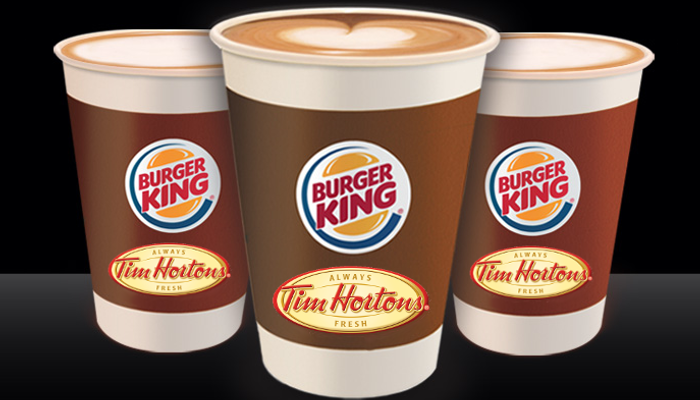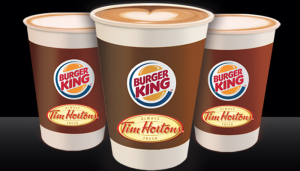Davies acted for Burger King Worldwide, Inc. in connection with its acquisition of Tim Hortons Inc. for approximately $12.5 billion which resulted in the creation of Restaurant Brands International, a new global company headquartered in Canada, and the third largest quick service restaurant in the world with approximately $23 billion in system sales and over 18,000 restaurants in 100 countries.
The Davies team included Patricia Olasker, Steven Harris, Cam Rusaw, Alex Mooreand Jay Galbraith (M&A), George Addy, Charles Tingley and Erika Douglas (Anti-Trust/Foreign Investment), Raj Juneja (Tax), Jessica Bullock (Employee Benefits), David Wilson and Zain Rizvi (Capital Markets), Carol Pennycook, Derek Vesey and Anthony Spadaro (Banking).
It’s official: in a deal that was unanimously approved by the boards of both companies, Burger King (NYSE:BKW) will buy Canadian icon Tim Hortons (TSX:THI) (NYSE:THI) for $12.5 billion.
Executives from both companies insist the move is not tax-motivated.
The combined entity will have over 18,000 restaurants across 100 countries, which the companies say will make it the world’s third-largest fast food chain. It will be listed on both the TSX and the NYSE.
Tim Hortons and Burger King insist they will operate each business independently and that nothing will change in the individual restaurants.
“We will still be the company of the TimBit and the double-double,” said Tim Hortons president and CEO Marc Caira in an August 26 conference call.
Although the companies say that the new global organization will be Canada-based with the Tim Hortons headquarters remaining in Oakville, Ontario, Burger King will be headquartered in Miami, Florida, and the global company will be led by Burger King executive chairman Alex Behring.
Behring is also managing partner at 3G Capital, which will own about 51% of the new entity’s shares.
The companies say the move is motivated by a desire for international expansion of Tim Hortons, but many have speculated that this merger is tax-driven, so that Burger King can benefit from lower taxes available in Canada. Because of this belief, many Burger King customers have taken to the company’s Facebook page saying they intend to boycott the company.
Behring said this is not the case, explaining that Burger King is currently taxed in the mid-to high 20% range, which is currently in line with what would be paid in Canada.
Daniel Schwartz, the 33-year-old CEO of Burger King, agreed.
“We don’t expect there to be meaningful tax savings.”
When asked why Canada was chosen for the new entity’s headquarters, Schwarts said it is because Canada is by far the largest market for the new company, “by any metric,” which he said includes market share, revenues, assets and number of employees.
Tim Hortons said it will not be making any layoffs and neither its relationship with franchisees nor its business model will change in any way. The companies say that it will be “business as usual” for both brands, and that there are no plans for cross-branding opportunities.
“As an independent brand within the new company, this transaction will enable us to move more quickly and efficiently to bring Tim Hortons iconic Canadian brand to a new global customer base,” Caira said in a news release.
“At the same time, our customers, employees, franchisees and fellow Canadians can all rest assured that Tim Hortons will still be Tim Hortons following this transaction, including our core values, employee and franchisee relationships, community support and fresh coffee.”
Tim Hortons shareholders will receive the equivalent of $94.05 per share. Each shareholder has the option to receive cash or shares in the new company.
Tim Hortons said its charity involvements, which include the TimBits Minor Sports Program and the Tim Horton Children’s Foundation, will not be affected by this deal.
As of Friday, August 22, Tim Hortons shares had been trading at $68.78. As of press time August 26, shares of Tim Hortons were trading at $88.95 – an increase of 8.44% compared with August 25, which had seen a jump of 19.26% on the announcement of the possible merger. (BIV by Emma Crawford Hampel)













